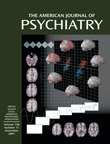“Mind” and “Brain”
To the Editor: Mixing science and philosophy is fun, but it can undermine the credibility of psychiatry. I was pleased to read in the editorial by Glen O. Gabbard, M.D. (1), the dismissal of “a remnant of persistent Cartesian thinking” (p. 1) and, in the same issue, the reminder by Robert G. Shulman, Ph.D. (2), of Crick’s refreshing definition of mind: “the behavior of our brains” (p. 11). Unfortunately, Dr. Gabbard’s other words—“the mind is inextricably connected to the brain” (1, p. 1) and “when we treat the brain with somatic treatments, we cannot bypass the mind” (p. 3)—suggested that the brain and mind are separate entities instead of one—the brain being the entity (3, p. 758: “the existence of something as contrasted with its attributes or properties”) and the other (the mind) being the attribute or capability—and that he therefore supports Cartesian dualism.
To grasp the incongruity, imagine a gastroenterologist declaring, “digestion is inextricably connected to the intestine”! Just to let the world know how much we are still struggling with those concepts, the theme of the last APA annual meeting was “Mind Meets Brain.” This indeed pleased health maintenance organizations and other adversaries of parity and further confused the public and legislators. Let’s hope that “mindful” people at the annual meeting settled the matter once and for all and concluded that 1) Descartes died some time ago, probably during “The Decade of the Brain,” and 2) the mind is defined as “one of the many behavioral expressions of the brain.”
1. Gabbard GO: Empirical evidence and psychotherapy: a growing scientific base (editorial). Am J Psychiatry 2001; 158:1-3Link, Google Scholar
2. Shulman RG: Functional imaging studies: linking mind and basic neuroscience. Am J Psychiatry 2001; 158:11-20Link, Google Scholar
3. Gove PB, Merriam-Webster (eds): Webster’s Third New International Dictionary. Springfield, Mass, Merriam-Webster, 1993Google Scholar



